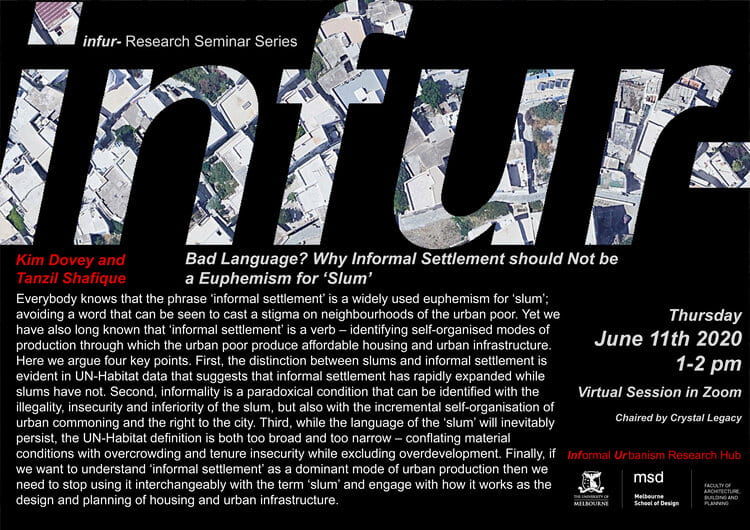
Jun 11, 2020 / Research Seminar #7 / Bad Language? Why Informal Settlement should Not be a Euphemism for ‘Slum’
Everybody knows that the phrase ‘informal settlement’ is a widely used euphemism for ‘slum’; avoiding a word that can be seen to cast a stigma on neighbourhoods of the urban poor. Yet we have also long known that ‘informal settlement’ is a verb – identifying self-organised modes of production through which the urban poor produce affordable housing and urban infrastructure. Here we argue four key points. First, the distinction between slums and informal settlement is evident in UN-Habitat data that suggests that informal settlement has rapidly expanded while slums have not. Second, informality is a paradoxical condition that can be identified with the illegality, insecurity and inferiority of the slum, but also with the incremental self-organisation of urban commoning and the right to the city. Third, while the language of the ‘slum’ will inevitably persist, the UN-Habitat definition is both too broad and too narrow – conflating material conditions with overcrowding and tenure insecurity while excluding overdevelopment. Finally, if we want to understand ‘informal settlement’ as a dominant mode of urban production then we need to stop using it interchangeably with the term ‘slum’ and engage with how it works as the design and planning of housing and urban infrastructure.
Presented by Kim Dovey and Tanzil Shafique
Session Chair: Crystal Legacy
June 11, 2020
1-2 pm (AEST)
